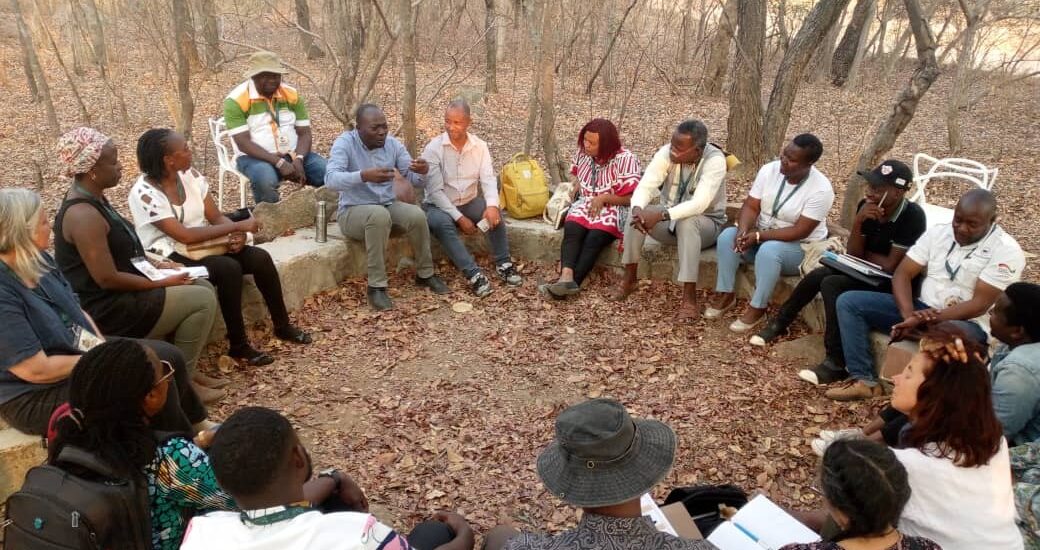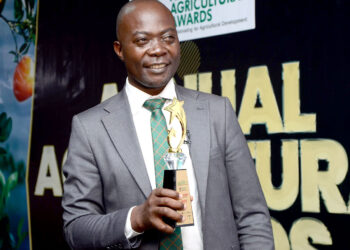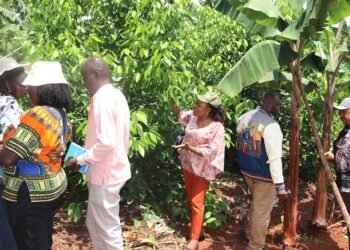

Background
Agriculture continues to play a significant role in African communities. The majority of Sub-Saharan African nations still rely heavily on agriculture and food production as their main source of income, supporting more than 60% of livelihoods, making substantial contributions to Africa’s GDP and employment, and serving as the foundation for rural development.
Africa has enormous potential for a resilient, sustainable, and self-sufficient food system based on agroecological principles because of its large amount of arable land, abundant biodiversity, and favourable agroclimatic conditions. This potential is still underutilized, though. Agriculture has not always been given top priority in national and regional development goals, despite numerous statements and commitments made by African governments at regional and international fora. Rather, unsustainable technologies, foreign legal frameworks, and industrial and traditional farming practices supported by multinational businesses remain at the forefront. These systems frequently jeopardize ecological and traditional farming methods, resulting in soil depletion, biodiversity loss, environmental deterioration, and a widening social divide brought on by outside monopolies. Africa’s ability to produce a wide variety of premium, high-quality, organic, and culturally acceptable food, however, is still neglected and unsupported.
The legal aspects of the agroecological transition are still underdeveloped, mostly at the continental level and regional economic blocks, despite the fact that agroecology is becoming more and more recognized in scientific and policy circles. National laws frequently fall short of policy goals. Debates about agroecology and food systems rarely include legal experts, and the accountability gap between international commitments and domestic implementation persists unchecked.
Yet, as the classical legal maxim reminds us:
“Ubi homo, ibi societas; ubi societas, ibi ius”—Where there is society, there is law.
With the African continent facing significant challenges in her agrifood systems, it is imperative to have the agroecology movement anchored under the law to enhace and uphold governance and accountability.
Against this backdrop, the Agroecology Legal Network for Africa (ALENAF) was born in 2025. ALENAF is a Pan-African legal and advocacy network comprising of lawyers, academia, civil society actors, farmer groups and movements, policy makers and other Agroecology actors, all committed to defending and advancing agroecology using legal tools, research, and litigation. With members from across Africa’s five regions, ALENAF operates as a collaborative, trans-disciplinary legal hub, uniquely positioned to shape Africa’s agri-food systems.
ALENAF connects the agri-food systems pathway through a legal lens, leveraging law as a strategic lever for equity, sustainability, and resilience.
Vision
An equitable, accountable and a well governed agri-food system in Africa.
Mission
To advance sustainable agri-food systems through litigation, research and legal advocacy in Africa.
Core Values
- Equity
- Integrity
- Human dignity
- Social justice
- Public interest
- Inclusivity
- Transparency
- Gender sensitivity and equity
- Innovation and collaboration
Thematic Areas
The Agroecology Legal Network for Africa is committed to advancing agroecological transformations through legal and policy advocacy across the entire agri-food value chain (that is, from pre-farm to fork). Recognizing the interconnected challenges of food insecurity, food sovereignty, environmental degradation, and social injustice, the Network seeks to promote legal frameworks that uphold:
- Food Sovereignty and Food Security
ALENAF champions the rights of communities and nations to define their own food systems, prioritize local production, and ensure access to adequate, culturally appropriate, and nutritious food. The Network supports legal frameworks that uphold food as a human right.
- Seed Sovereignty and Seed Equity
ALENAF advocates for farmers’ rights to save, use, exchange, and sale indigenous seeds. It pushes back against restrictive seed laws and corporate monopolies by promoting equitable, rights-based seed systems grounded in community ownership and biodiversity.
- Food Safety and Nutrition
ALENAF promotes legal standards and public policies that ensure the availability of safe, nutritious, and non-toxic food. It addresses the regulatory gaps that allow harmful chemicals and ultra-processed foods into African food systems.
- Ecological Integrity and Biodiversity
Central to agroecology is the preservation and restoration of ecosystems. ALENAF advocates for laws and policies that protect biodiversity, promote ecological farming methods, and strengthen environmental stewardship at all levels.
- Land Rights and Natural Resource Governance
ALENAF seeks to protect farmers’ rights to land, especially for smallholder farmers, women, and indigenous communities. It promotes just and inclusive governance of land, water, forests, and other natural resources as foundational for food system sustainability.
- Participatory Governance and Accountability
ALENAF fosters people-centered decision-making by advocating for legal frameworks that enable meaningful participation of farmers, pastoralists, fisherfolk, and communities in policymaking. It strengthens accountability mechanisms for duty-bearers under national, regional and international laws and commitments.
- Economic and Climate Justice
ALENAF links agroecology with broader justice struggles. It works to ensure that climate and economic policies address historical injustices, prevent greenwashing, and support agroecological transition as a climate-resilient and pro-people development pathway.
- Trade-Related Aspects of Agroecology
ALENAF critically engages with trade and investment policies and agreements to ensure they do not undermine local food systems. It promotes fair trade frameworks that support local markets, protect traditional knowledge, and resist harmful liberalization of agricultural inputs and food commodities.
- International and Regional Solidarity
ALENAF builds solidarity across borders to strengthen continental and global movements for agroecology. It collaborates with Africa’s regional bodies to harmonize legal instruments that support agroecological systems.
- Empowerment and Sustainable Livelihoods
ALENAF uplifts marginalized voices, especially women and youth, by advocating for policies that support dignified livelihoods through agroecology. This includes access to finance, extension services, and markets that are inclusive and community-driven.
- Integration of Scientific and Indigenous Knowledge
ALENAF bridges modern science and traditional knowledge systems to inform robust, context-specific legal and policy frameworks. It affirms that local knowledge is critical for the sustainability and adaptability of agroecological practices.
Strategic Objectives
ALENAF works to:
- Provide legal support and defend agroecology entrepreneurs, policy makers, CSOs, smallholder farmers, and agroecological communities across Africa.
- Advocate for and draft policies, laws and ordinances that support the right to land, seed sovereignty, agroecology market access, and agroecological economies, at national, continental and international level.
- Effect processes of integration of agroecological principles into local, national, and continental governance structures.
- Conduct legal capacity building of legal professionals, policymakers, and leaders from grassroots to continental level to advance agroecological transitions.
- Foster inclusivity by ensuring that women, the youth, people with disabilities and other vulnerable persons are meaningfully included in agroecological governance, advocacy, and funding mechanisms;
- Facilitate collaboration by creating platforms for Pan-African agroecology conferences, knowledge exchanges, and partnerships to strengthen agroecological networks and legal advocacy.
- Offer legal defence to all agroecology civil society organizations who face intimidation, threats and actual legal attacks from industrial agriculture organizations and or companies
- Monitor and hold accountable industrial agricultural practices and emerging technologies that undermine agroecology in Africa, while actively defending the rights of smallholder farmers to access, use, and protect indigenous seeds, traditional knowledge, and biodiversity.
- Enhance communication through development of innovative content for social media and public platforms to educate, advocate, and inspire action for agroecology movement.
- Monitor and provide legal responses to continental and global agriculture process, polices and laws to conform to all the agroecology principles and practices
- Provide legal guidance to and defend agroecology academia, policy makers and implementers in their pursuit of scientific innovations in the field of agroecology and publications.
- Promote climate justice in Africa.
- Support legal compliance in trade, seed laws, biodiversity, and agroecology markets.
- Cause monitoring and accountability through regular and effective assessment and reporting on policy impacts on communities and ecosystems.
The Structure
ALENAF operates through the following governance bodies:
- Advisory Board: The Governance Body.
- Secretariat: The Administrative body.
- Working Groups: The membership body.
- Advisory Board:
ALENAF is governed by a rotational Advisory Board comprising of:
- The President who shall;
-
- Preside and direct all Board meetings in accordance with the provisions of the Constitution;
- Provide strategic leadership;
- Ensure compliance with the Legal Network’s mission and values;
- He/she must be a signatory o the Network’s Bank Account;
- Shall be an active member and has the casting vote in case of tie at the meeting; and
- Act as the primary representative and spokesperson for the legal Network in regional and international engagements.
-
- The Vice-President who shall;
-
- Assist the chairperson in their duties; and
- Take over the leadership where a vacuum is created by the absence or otherwise, of the chairperson until a by-election is affected; and
- Over specific projects as assigned by the Advisory Board.
-
- Five (5) Regional Representatives (Eastern, Western, Central, Northern, and Southern Africa)
The regional representatives serve a term not exceeding five (5) years and only eligible for re-nomination after the expiration of the subsequent term.
Functions include:
- Review and approval of policies that effectively govern the operations of the Network and monitor compliance. Strategic oversight and policy approvals.
- Monitoring and overseeing management, and guide the Secretariat.
- Effecting Secretariat staff appointments, renumeration, discipline and terminations.
- Strategic oversight over the promotion and realisation of the vision, mission and objectives of the Network.
- Actively participating in the mobilization of financial and other resources.
- Review and make appropriate recommendations of amendment of the Network Constitution.
- The Secretariat
The Secretariat, currently hosted in Uganda, handles ALENAF’s daily operations, coordination of programs, implementation of board decisions, and communication. It is led by a Coordinator and supported by technical officers and administrative staff.
The Coordinator nominated from a pool of lawyers, vetted and approved by the Advisory Board is:
-
- Of relevant qualifications, knowledge and considerable experience; and
- holds office for five years and has a chance of reappointment for only two (2) further terms.
C. Working Groups
- Legal Advocacy and Litigation
- Policy Development, Accountability, and Good Governance
- Legal Research and Knowledge Sharing
- Community Engagement and Capacity Building
- International and Continental Policy and Legal Compliance
Legal Advocacy and Litigation Working Group
This working group focuses on providing legal representation, litigation support, and legal advocacy for agroecological practices, farmers rights and environmental justice with a strategy to:
- Develop and execute legal cases defending land tenure rights, and food rights and healthy environment rights of agroecological entrepreneurs, Civil societal Organizations.
- Engage in public interest litigation to challenge laws and practices that threaten sustainable agriculture and climate resilience.
- Build a network of pro-bono lawyers to offer legal support to smaller holder farmers and underserved communities.
- Strengthen partnerships with judicial bodies to enhance access to justice for smaller holder famers, agroecology entrepreneurs and underserved communities.
- Advocate for the enforcement of agroecology-related laws and policies.
Policy Development, Accountability, and Good Governance Working Group
This working group focuses on fostering legal and policy environments that support agroecology, equitable food systems and sustainable land management with the following Strategy—
- Conduct legal audits and impact assessments on existing policies to ensure alignment with constitutional and international commitments to agroecology.
- Advocate for the implementation of agroecological principles in national development strategies, climate action plans and rural development policies.
- Develop and promote policy recommendations that enhance transparency, accountability, and participatory governance in agriculture and food security sectors.
- Foster multi-stakeholder dialogue, including farmers, policymakers, researchers, and civil society, to ensure inclusive decision-making in food and agricultural governance.
Legal Research and Knowledge Sharing Working Group
- This Track focuses on the generation and dissemination of legal knowledge that strengthens agroecological governance and resilience with the following strategy—
- Conduct empirical legal research on impact of national and regional laws on agroecology, land tenure, and sustainable farming practices.
- Develop and distribute policy briefs, toolkits, and scholarly publications to support evidence-based advocacy and decision-making.
- Establish knowledge sharing platforms such as legal conferences, policy dialogues, and online repositories for agroecology related legal resource.
- Collaborate with research institutions, universities, and legal experts to advance the legal recognition and integrating of agroecological practices.
Community Engagement and Capacity Building Working Group
This working group focuses on strengthening local communities’ legal knowledge and capacity, enabling them to actively engage in agri-food decision-making and support agricultural sustainable practices through —
- Development and implementation of Legal literacy programs to inform communities about their right, responsibilities, and opportunities within the agroecology movement.
- Facilitation of community-based training on agroecology, legal advocacy, and sustainable farming practices, focused on women, youth, and underserve communities.
- Fostering community participation in policy dialogues, Legal reforms, and advocacy efforts to ensure proper representation of local interests at the national and continental framework.
- Establishment of Community Advocacy Groups (CAGs) to carry out grassroot mobilization, legal empowerment and policy influence.
International and Continental Policy and Legal Compliance Working Group
This working group ensures that national legal and policy frameworks comply with international and Continental agroecology commitments by—
-
- Monitoring and assessing all actors’ compliance with international treaties and continental frameworks.
- Providing Legal guidance on integrating agroecological principles into national laws and regulatory frameworks.
- Engaging in diplomatic and legal forums to influence policy and standard-setting in agroecology.
- Strengthening partnerships with international legal bodes, regional economic communities, and continental organizations to harmonize laws and policies promoting sustainable agriculture and agroecological justice.
Scope of operations
ALENAF operates as a legal and advocacy network dedicated to promoting, protecting, and transforming agroecological food systems across Africa.
Programs
ALENAF’s programs are:
(a) Legal Advocacy and support
(b) Policy Advocacy and Development
(c) Legal Research and Knowledge Dissemination
(d) Capacity Building and Community Empowerment
(e) Collaboration and Partnerships
Services
ALENAF provides:
(a) Legal services;
(b) policy engagement services;
(c) Training and Capacity Building;
(d) Information and Resource Sharing; and
(e) Outreach and Advocacy.
Membership
ALENAF operates as a member-based network. Membership is open to individuals and institutions committed to agroecological transition. The Network maintains an updated members’ register.
Membership Categories
The Network has the following membership categories—
- Full Members
- Associate Members
- Affiliate Members
Full members:
Individual Lawyers, Law firms, Legal aid clinics, Legal Networks, CSOs academia and advocacy groups, farmer groups, private sector entities supporting agroecological movement with fully paid-up membership fees.
Associate Members
Members described under full members supporting agroecological movement without fully paid-up membership fees.
Affiliate Members
Regional or international organizations and individuals providing financial, technical, or strategic support to Legal Network’s mission.
Membership Eligibility Criteria
Applicants must:
- Demonstrate commitment to agroecology, food sovereignty, and environmental justice;
- Agree to abide by ALENAF’s mission, values, and Code of Conduct;
- Submit documents including a written statement of interest and organizational profile (if applicable), demonstrating alignment with the Network’s Mission.
Membership Application Process
- Fill out and submit the Membership Application Form A.
- Attach supporting documents (like statement of interest or organizational profile, references if available).
- Application is reviewed by the Secretariat and forwarded to the Advisory Board.
- Decision (approval or rejection) is made within thirty (30) days from receipt. A successful applicant shall be notified in writing and issued a Membership Certificate.
Membership Rights and privileges
Members have a right to:
- Access ALENAF’s legal advisory services, resources and policy tools;
- Participate in conferences, workshops, advocacy, and training sessions;
- Contribute to research, advocacy campaigns, and knowledge-sharing platforms;
- Be considered for service on committees and working groups or advisory panels (Full members);
- Collaborate on projects, participate in events and workshops, with no voting rights (Associate and Affiliate members).
Membership Obligations
Members must:
- Actively engage in network activities and knowledge-sharing;
- Uphold the principles and values of agroecology and ALENAF’s mission;
- Adhere to the Code of Conduct, including maintaining confidentiality and avoiding conflicts of interest;
- Pay annual membership fees as determined by the Advisory Board.
NB: Failure to fulfill these obligations may result in termination of membership.
10. Legal Beneficiaries
Primary beneficiaries include:
- Agroecology entrepreneurs and smallholder farmers;
- Indigenous communities and grassroots movements;
- Civil society organizations and grassroot movements;
- Legal Practitioners, Policy makers, Government entities and researchers.
11. Collaboration and Accountability
- ALENAF partners with beneficiaries to co-create solutions.
- Legal interventions are tailored to reflect local priorities.
- Regular feedback and reporting ensure transparency and accountability.
To join the network, please download the declaration form here. Once completed, kindly scan and return it to us via email info@cefroht.org for processing.
12. Contact Information
Secretariat – ALENAF
Currently hosted at: Center for Food and Adequate Living Rights (CEFROHT)
Email: info@cefroht.org,
Physical Adress: Plot 66-67 Kiriwawanvu Lane, Uganda.
-
Experts Clarify Misinformation on Staple Foods and Diabetes, Urge Balanced Diets
The Uganda National Civil Society Coalition on Front of Pack Warning Labelling (UNCC-FOPWL) has issued a clarification to correct misinformation from a recent article titled “Staple Foods Causing Diabetes.” While raising awareness about Type 2 Diabetes (T2D) is crucial, the coalition emphasized that the disease is not caused by traditional staple foods like matooke, cassava,
July 31, 2025 -
CEFROHT Executive Director Dr. Kabanda David Wins National Food Systems Award
Kampala, Uganda – The Centre for Food and Adequate Living Rights (CEFROHT) is pleased to announce that its Executive Director, Dr. Kabanda David, has been awarded the Food Systems Award at the Annual Agricultural Awards Ceremony. The event was jointly hosted by the Food and Agriculture Organization (FAO) and the Ministry of Agriculture, Animal Industry
July 25, 2025 -
Momentum Builds for East African Agroecology Law Following EALA Resolution
In a historic move, the East African Legislative Assembly (EALA) Agriculture, Tourism and Natural Resources (ATNR) Committee recently adopted a groundbreaking resolution recognising agroecology as a strategic priority—a major step forward in the region’s journey towards resilient, sustainable food systems. This resolution, passed during the capacity-building event held from 13th to 15th November 2025, has
July 10, 2025 -
CEFROHT Ignites Regional Momentum for Agroecology Through Policy and Advocacy at the 2nd East Africa Agroecology Conference
At the 2nd East Africa Agroecology Conference, held from 25th to 28th March in Nairobi, Kenya, the Centre for Food and Adequate Living Rights (CEFROHT) made a significant intellectual and advocacy contribution to the regional agroecology movement. As a legal and policy-focused organisation dedicated to transforming food systems through a rights-based lens, CEFROHT took centre
July 10, 2025





